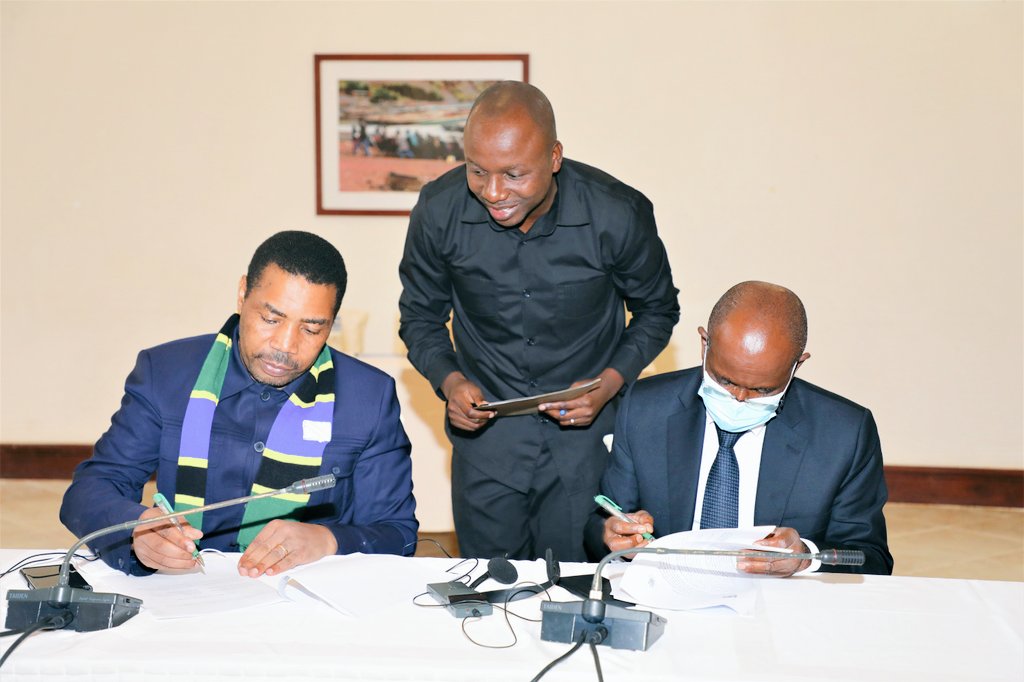Read more
The Africa Finance Corporation (AFC) has raised $400m in a new syndicated loan to support the development of infrastructure on the continent and aid in the post-pandemic recovery. Strong interest from investors led to the offering being 2.5 times oversubscribed, leading to a total facility of $100m above the initial target. This is the AFC’s first three-year facility since 2018. “The proceeds will facilitate upcoming infrastructure projects that address the continent’s developmental challenges,” the AFC said in a statement. Moody’s recently improved its outlook for AFC’s investment grade credit ratings to ‘stable.’ Its senior unsecured ratings at A3 and short-term issuer ratings at P-2 are the second highest of any institution in Africa. Key participating lenders as bookrunners and mandated lead arrangers include Absa Bank, Bank of China (London branch), First Abu Dhabi Bank PJSC, ICBC (London), Mashreq Bank PSC of Dubai, MUFG Bank of Japan, Nedbank (London branch), Rand Merchant Bank (a division of FirstRand Bank, London branch), Standard Chartered Bank and SMBC Bank International, acted as Bookrunners and Mandated Lead Arrangers. On their side, the Korea Development Bank and Standard Bank of South Africa acted as Mandated Lead Arrangers, while MUFG Bank Ltd and ICBC (London) also acted as Facility Agent and Documentation Agent, respectively. Last year, the AFC revealed plans to step up its infrastructure financing in Africa with a new asset management division, AFC Capital Partners. Its debut offering, the Infrastructure Climate Resilient Fund (ICRF) is planning to raise $500m this year and $2bn over the next three years.
The board of Nigeria LNG (NLNG) approved yesterday the supply of its entire production of propane and butane to the Nigerian market. In September 2019, the company had already decided to increase its domestic LPG supplies from 350,000 tonnes to 450,000 tonnes per year from 2021 onwards. Last year, NLNG’s supplies reached about 400,000 tonnes. A few months ago, Nigeria LNG also supplied its first propane cargo into Nigeria. According to the company, it has developed a scheme to sustainably supply propane for usage in cooking gas blending as well as in agro-allied, autogas, power and petrochemical sectors. Until now, it had only supplied butane cargoes, with initial deliveries starting back in 2007. “These initiatives are designed to increase LPG availability in Nigeria, diversifying its uses and support the Federal Government’s Decade of Gas initiative,” Nigeria LNG said in a statement. The supply and consumption of cooking gas (or LPG) in Nigeria has witnessed a compound annual growth rate (CAGR) of over 20% for several years. As a result, the market successfully absorbed a record of over 1 million metric tonnes (MMT) of LPG in 2020. The government is hoping to reach 5 MMT by 2030. However, soaring global gas prices in 2021 have limited the growth of the sector in a country where over half of LPG supplies are met by imports. As a result of current market conditions, most Nigerians cannot afford cooking gas anymore and are going back to burning wood or using biomass fuels. As a result, supply grew only very modestly last year and did not go much higher than the 1 MMT threshold. To make LPG more affordable, the Nigerian government is incentivizing the growth in local production. A 7.5% VAT was imposed on imported LPG last year despite strong opposition from the industry. However, only a significant rise in domestic output could help offset external vulnerabilities, and hopes are that the full allocation of Nigeria LNG’s production to the domestic market could contribute to bring prices down.

